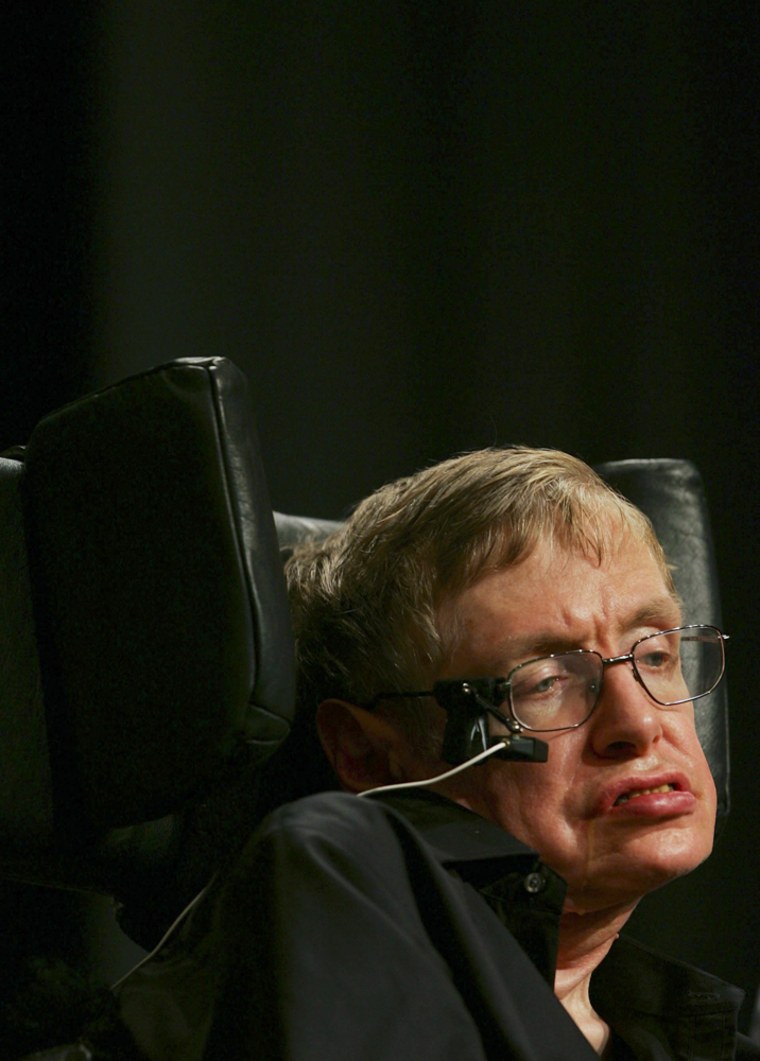Physicist Stephen Hawking received the highest award for scientific achievement Thursday for his work in theoretical physics and cosmology.
The Copley medal first was awarded in 1731 by the Royal Society, Britain's elite scientific academy. Previous recipients have included Charles Darwin, Albert Einstein, Louis Pasteur and Capt. James Cook.
"This is a very distinguished medal," Hawking said in a statement. "It was awarded to Darwin, Einstein and (Francis) Crick. I am honored to be in their company."
Hawking, 64, is a mathematics professor at the University of Cambridge. His groundbreaking theoretical work has allowed for the classification and greater understanding of black holes.
Hawking has written four books, including "A Brief History of Time" and "The Universe in a Nutshell," keeping up a busy career despite being paralyzed by motor neuron disease.
"Stephen Hawking has contributed as much as anyone since Einstein to our understanding of gravity," said the society's president, Lord Rees. "This medal is a fitting recognition of an astonishing research career spanning more than 40 years."
To recognize Hawking's achievements in cosmology, British astronaut Piers Sellers carried Hawking's medal into space on the July shuttle mission to the international space station.
"Stephen Hawking is a definitive hero to all of us involved in exploring the Cosmos," Sellers said. "It was an honor for the crew of the STS-121 mission to fly his medal into space. We think that this is particularly appropriate as Stephen has dedicated his life to thinking about the larger universe."
"My next goal is to go into space," Hawking said in an interview with British Broadcasting Corp. radio.
Ultimately, he said, humanity's future depends on colonizing distant worlds.
"The long-term survival of the human race is at risk as long as it is confined to a single planet," he said. "Sooner or later, disasters such as an asteroid collision or nuclear war could wipe us all out. But once we spread out into space and establish independent colonies, our future should be safe."
